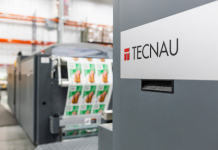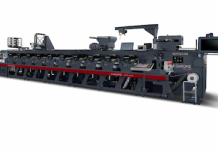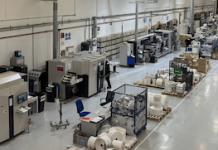According to Dean Richards, CEO of Ricoh South Africa, beyond boosting overall productivity, adopting automation is a smart move for any business looking to optimise its operations, prepare for the future and make the most of organisational resources and talent.
For businesses that haven’t yet embraced it, 2024 is the time to make automation a priority. Automation is a crucial tool that helps companies stay efficient and competitive. It simplifies routine tasks, freeing up employees to focus on more important work that requires creative thinking and strategic planning.
1. Strong Appetite For Automation
Automation technologies have a widespread appeal among office workers due to their ability to streamline tedious tasks and processes. This stems from automation’s capability to universally address common pain points in office work, such as repetitive data entry or complex scheduling. By easing these burdens, automation contributes to a more engaging and less stressful work environment, appealing to workers and decision-makers alike.
A Ricoh poll of 6000 workers and 1500 decision makers across the UK, Ireland, France, Germany, Italy, the Netherlands and Spain shows that decision makers recognise the drain of time-intensive processes on their workforce, with 76% making the automation of tedious tasks a core part of their digital transformation strategy. This is in line with a near exact proportion of workers (78%) saying they would welcome automation tools as a means of reducing laborious tasks. It’s also good news for customers. Automation means greater speed of service, reduced margin of error and increased capacity to innovate.
2. More Time For What Matters Most
The average worker spends almost a third of their day on admin. That’s roughly two and a half hours. This is time that could be spent on more cash generative and personally rewarding tasks.
There’s no underestimating the value of being able to find, manage and store key documents. But spending the equivalent of 12 hours a week on this type of activity is poor use of anyone’s time. This is magnified further when you consider that 64% of workers would find work more enjoyable if they had time for creative tasks.
Automation takes over these time-consuming tasks, enables workers to focus on more strategic, creative, and rewarding activities. This shift not only enhances job satisfaction but also allows workers to contribute more meaningfully to their organisation’s goals.
3. Security First (And Foremost)
Processing and storing paper-based documents such as invoices, contracts and orders requires space, time and patience. These document types are often subject to legal and compliance rules that are difficult to adhere to offline, placing them at risk of damage, loss and leakage.
It’s a similar story when it comes to mail rooms, with manual mail distribution an inefficient, recurring and time-consuming process. At the same time, inputting mail data into business systems comes with high labour costs, as well as reporting, tracking and security challenges.
Automation tools are designed with built-in security features that help safeguard sensitive information and ensure compliance with industry regulations. By automating the handling of documents, invoices, and contracts, office workers can minimise the risk of data breaches and loss. In addition, automated systems often come with audit trails and encryption, providing an extra layer of security and peace of mind.
4. Kinder To Environment And More Convenient
Automation contributes significantly to environmental sustainability by reducing the need for paper-based processes and physical storage. This reduction in paper use not only decreases the office’s environmental footprint but also leads to cleaner, more organised workspaces.
Moreover, automation offers convenience through digital workflows and cloud-based storage solutions, enabling easy access to information and facilitating remote work, which can further reduce carbon emissions related to commuting.
5. Productivity Gains
The adoption of automation technologies has been shown to lead to substantial productivity increases for office workers. Businesses that implemented automation software in the last financial year experienced an average productivity increase of 14%. By automating routine and repetitive tasks, workers can accomplish more in less time, with fewer errors.
This increase in efficiency boosts the bottom line for businesses and also enhances the job satisfaction of employees who can see the direct impact of their work.
RICOH
https://www.ricoh.co.za/





















